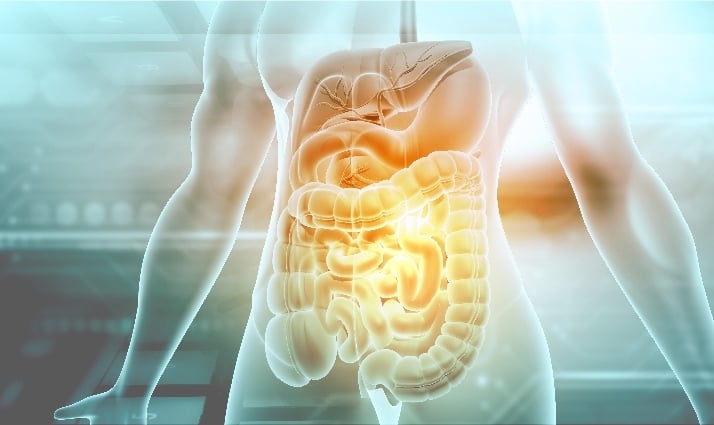Food Poisoning: Symptoms, Causes, and Treatment
March 11, 2025

Food poisoning, also known as a foodborne illness, occurs when contaminated food is consumed. Harmful bacteria, viruses, parasites, or toxins are the primary causes of gastrointestinal disorders. While some individuals may not experience any symptoms, others may suffer from mild digestive discomfort or severe dehydration. If you’ve got a light case, you might think you’ve got a ‘stomach flu’ or a virus. You’ll recover with no treatment. But some people have such bad symptoms that they’ll need to attend the hospital.
Symptoms
The Common Symptoms
Cramps in your stomach and gut, diarrhoea, and vomiting may start as early as 1 hour after eating tainted food and as late as ten days or longer. It also depends on what is causing the infection. Some common symptoms of a variety of food poisonings might include:
- Bloating and gas
- Fever
- Muscle aches
- Weakness
- Belly pain and cramping
- Nausea
- Vomiting
Signs and symptoms may start within hours after eating the contaminated food or begin days or weeks later. Sickness caused by food poisoning usually lasts a few hours to several days.
Some Life-Threatening Symptoms
- Repeated vomiting
- Signs of dehydration include dry mouth, little or no urination, dizziness, or sunken eyes
- Any diarrhoea in a newborn or infant
- Diarrhoea that lasts longer than two days (1 day in a child) or is severe
- Severe gut pain
- High Fever
- Bloody stools
- Muscle weakness
- Tingling in your arms
- Blurry vision
- Confusion
- Diarrhoea or flu-like illness in pregnant women
- Jaundice
Risk Factors
The likelihood of falling ill after consuming contaminated food depends on the type of organism, the level of exposure, your age, and overall health. Certain groups are at higher risk, including:
- Adults ages 65 and older: Your immune system becomes less ready to repel infection.
- Babies and young children: Very few children have fully developed immune systems.
- Pregnant women: Changes in your body when you’re pregnant make it more likely that germs and bacteria can cause you to be seriously sick.
- People with long-term illnesses: Conditions like diabetes, kidney disease, liver disease, HIV, AIDS, or cancer treatment can weaken your immune system.
Diagnosis
Your doctor will review your medical record to diagnose food poisoning, including your symptoms, how long you’ve had them, and what foods you’ve eaten. They’ll also ask whether you’ve traveled, and they may question whether anyone else in your reception has these symptoms. They’ll test your urine to ascertain if you’re dehydrated based on what they determine. They’ll also take blood and stool samples to identify and trace the organism that has caused your illness. If they choose the organism, they’ll contact your local health department to ascertain if there’s an epidemic. Unfortunately, it’s not always possible to seek out the precise cause.
They’ll test your urine to ascertain if you’re dehydrated based on what they determine. They’ll also take blood and stool samples to identify and trace the organism that has caused your illness. If they choose the organism, they’ll contact your local health department to ascertain if there’s an epidemic.
Unfortunately, it’s not always possible to seek out the precise cause.
Tips to Reduce the Risk of Food Poisoning at Home
- Wash your hands completely: Wash your hands thoroughly with soap and water (warm or cold) and dry them.
- Wash utensils: Wash worktops, knives, and utensils before and after preparing food, particularly after being touched by raw meat (including poultry), raw eggs, fish, and vegetables. Do not use antibacterial sprays; hot, soapy water is OK.
- Wash dishcloths: Wash dishcloths and tea towels regularly and allow them to dry before you use them again. Dirty, damp clothes are the right place for germs to spread.
- Use separate chopping boards: Use an independent cutting board to prepare raw food, such as meat and fish. This can be done to avoid contaminating ready-to-eat foods with harmful bacteria present in raw food before being cooked.
- Keep meat separate: It’s imperative to keep meat far away from ready-to-eat foods, like salad, fruit, and bread. These foods won’t be cooked before you eat them, so any bacteria that catch on the nutrition from the meat won’t be killed.
- Store meat on the rock bottom shelf: Always cover the meat and store it on the rock bottom shelf of the fridge, where it cannot touch or drip onto other foods.
- Cook food thoroughly: Ensure poultry, pork, sausages, and kebabs are cooked until steaming hot, with no pink meat inside. Before cooking, don’t wash meat, including chicken and turkey, as this may spread bacteria around your kitchen. For example, freezing raw chicken reduces the number of Campylobacter bacteria but doesn’t eliminate them.
- Keep your fridge below 5°C: Keep your fridge temperature below 5°C; use a fridge thermometer to check it. This prevents harmful germs from growing.
- Avoid overfilling your fridge: If it’s too full, air cannot circulate properly, affecting the general temperature.
- Cook leftovers quickly: If you’ve got cooked food that you are not getting to eat immediately, calm down as soon as possible (within 90 minutes) and store it in the fridge or freezer. Use any leftovers from the refrigerator within two days, and don’t reheat food quite once.
- Track ‘use-by’ dates: Do not eat food past its use-by date, even if it looks and smells OK. Use-by dates are supported by scientific tests that show how quickly harmful bacteria can develop within the packaged food and whether anyone else has these symptoms.
Frequently Asked Questions
1. Is lemon good for food poisoning?
Lemon juice is a powerful natural remedy for food poisoning. It offers quick relief by eliminating harmful germs. Its high antioxidant content and acidic nature help detoxify the digestive system effectively.







